A common reason cited by people for their decision against adopting a dog is the ‘dog smell’ one has to grow used to.
If you own a pet or get to interact with them, you would have noticed that different breeds and even different dogs of the same breed have distinct body odor, sometimes rather unpleasant.
As a potential first-time owner of dachshunds, likely questions about adopting a new dog in your mind are going to include: Do dachshunds smell a lot?
Does a life with them mean acceptance of foul body odor? Or if you are already an owner: Is there a reason why my dachshund smells bad sometimes?
What exactly is that peculiar fishy smell I can detect around it?
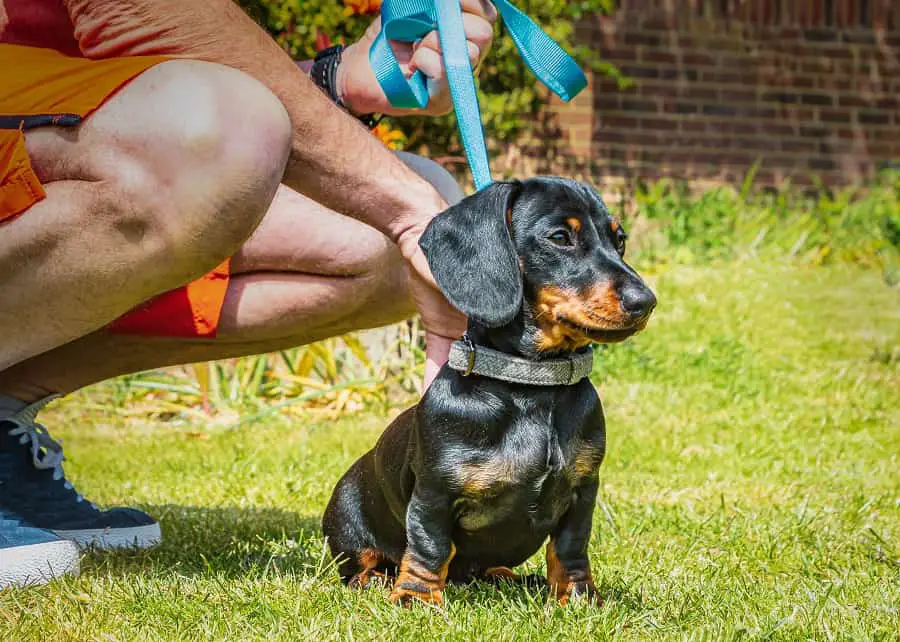
Dachshunds have a number of distinct characteristics, but being naturally odoriferous is not one of them.
The breeds you would typically find in the ‘World’s Stinkiest Dogs’ lists include Basset Hounds, Cocker Spaniels, Beagles, Bloodhounds, Pugs and Boxers.
You might have noticed some dachshund owners seeking solutions online for their pet’s odor issues.
But the root of these issues can almost always be found in other health or diet related problems.
A clean and healthy dachshund will not suffer from body odor – it is a living being, and so will have some smell of its own, but nothing strong enough to make you wince every time you cuddle with it.
Tips to Keep Dachshund Body Odor Away
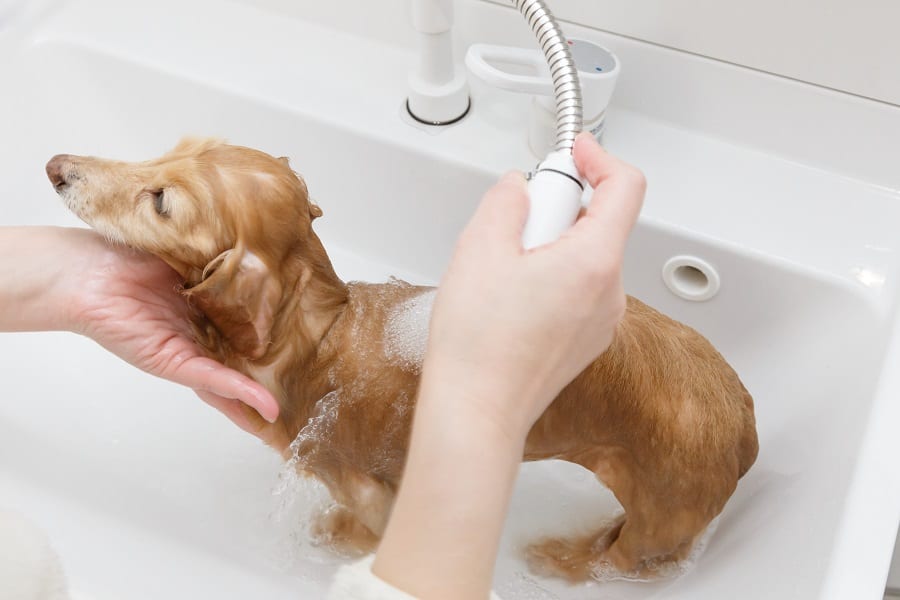
-Bathe the dog regularly, but not frequently, using gentle shampoo.
-Use prescribed medicine or dog deodorant, if required.
-Brush your dog and use dog wipes to clean it daily. Accord special care to its ears and paw pads. Wipe them gently every day, especially after a walk outside.
-Use a damp cotton ball for cleaning the ears.
-Brush its teeth at least twice a week. Give it a chew toy or rawhide to keep in its teeth to scrape away the tartar.
-Clean the dog’s bedding daily. You generally don’t need to wash it every day, but once in a few days is necessary.
-Keep the dog’s collar clean. Check frequently for any hidden grime.
-Do your research and consult an expert before fixing a diet for your dog. Feed it quality food.
-Use water additives (after proper research) or minty dog chews to help with bad breath.
-Ensure that the dog’s play area does not have any foul smelling object that it can put in its mouth or rub against.
Be vigilant so that symptoms of health ailments are detected early on. Do not hesitate to consult a vet for help with health issues, diet and cleaning.
Reasons for Body Odor
While there are a number of common reasons why your dachshund might develop an obnoxious odor, most of these reasons are easily taken care of.
In many cases, they can be prevented if you follow a few simple tips.
If any of these issues do arise, you can learn to manage them on your own or consult a vet, who will help you resolve it with little effort.
In this article, we will cover all the common issues that can result in foul body odor in your dachshund, and follow these up with a handful of tips that will help you keep these issues at bay.
The main reasons for body odor in dachshunds can be divided into four categories. We evaluate these in the decreasing order of veterinary urgency.
Health Ailments
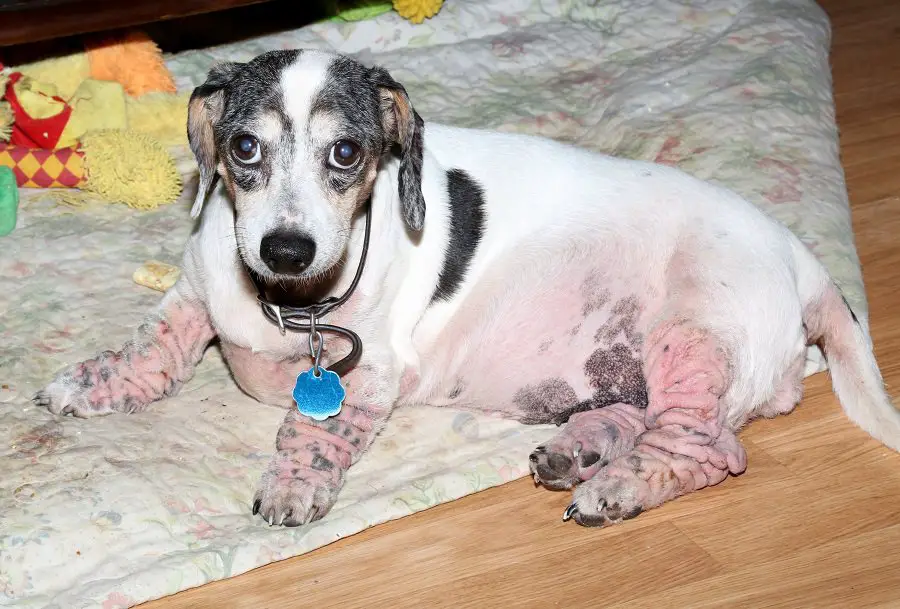
Skin conditions are the most common health-related issues that can lead to unpleasant odor in dogs.
If the foul smell is present all over your dog’s body, this is the first problem you should get it checked for.
Dachshunds are particularly prone to a condition called Canine Seborrhea, which can result in flaky skin and greasy hair.
It can be a result of other primary conditions like allergies, autoimmune disorders, endocrine disorders, parasites or dietary deficiencies.
It can also be an inherited condition in the breed, so even if you maintain perfect hygiene in your dog, it could develop this condition.
If your dog suffers from seborrhea, a buildup of oil, especially under the belly and the armpits, in the ears, and near the elbows and ankles, this can cause the dog to smell bad.
This is often, but not always, accompanied by other symptoms like excessive scratching, crusting and hair loss.
If the condition develops purely because of another primary condition, it can be cured completely through allergy medication or antibiotics.
If it is inherited, its symptoms can be controlled by using the right dog shampoo and by making the required changes in your dog’s diet.
Dachshunds are also genetically predisposed to a yeast infection called Malassezia dermatitis.
It is caused by fungi that are normally present on a dog’s skin, but are generally suppressed by a healthy immune system.
Abnormal overgrowth because of favorable conditions such as high humidity or weakening of the host animal’s immune system can result in overgrowth of these fungi.
This, in turn, can cause greasiness, scaly skin and patches of dark skin. Apart from the greasiness, the discharge from lesions can also be responsible for foul odor.
If this condition is diagnosed by your vet, he will suggest medicated shampoos and some medicine for skin application, along with some antibiotics if there are any concurrent bacterial infections.
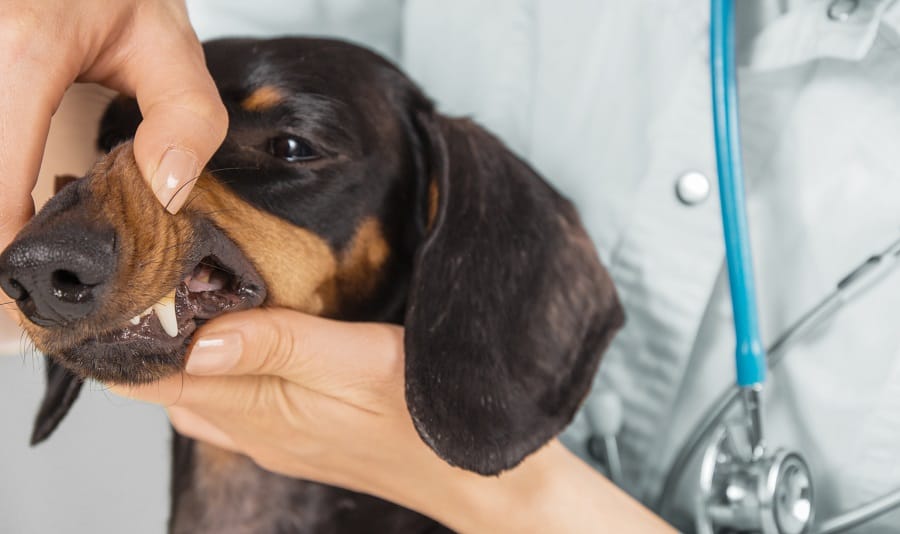
If the foul odor in your dachshund is concentrated around the oral area, the most likely culprit is an issue with the dog’s teeth.
Halitosis, gingivitis and periodontal disease are common in dogs, but dachshunds can be slightly more prone to these.
As in humans, the main reason for bad breath in dogs is tooth decay caused by a buildup of tartar.
Or it could be because of some gum disease. In either case, treatment by a qualified vet is the only solution, followed by proper oral care for the dog maintained by you.
Ear mites can also cause bad body odor. Dachshunds have long, floppy ears that provide refuge to dirt and infection-causing organisms.
The ears are heavy, so there is minimal air circulation under them, making the conditions even more suited to parasite growth.
As the ear mites feed off the ear wax and oils, they release a brownish, foul-smelling discharge.
A vet can prescribe the right medication to eliminate these mites, while proper ear care from you prevents recurrence.
One of the possible reasons for the fishy smell that some dachshund owners talk about could be kidney or liver failure.
Diabetes, which is related to the renal system, can also cause a sweet-rotten smell from the mouth.
These conditions are more likely to afflict an older dog, but your vet should always keep an eye out for them.
Anal sacs
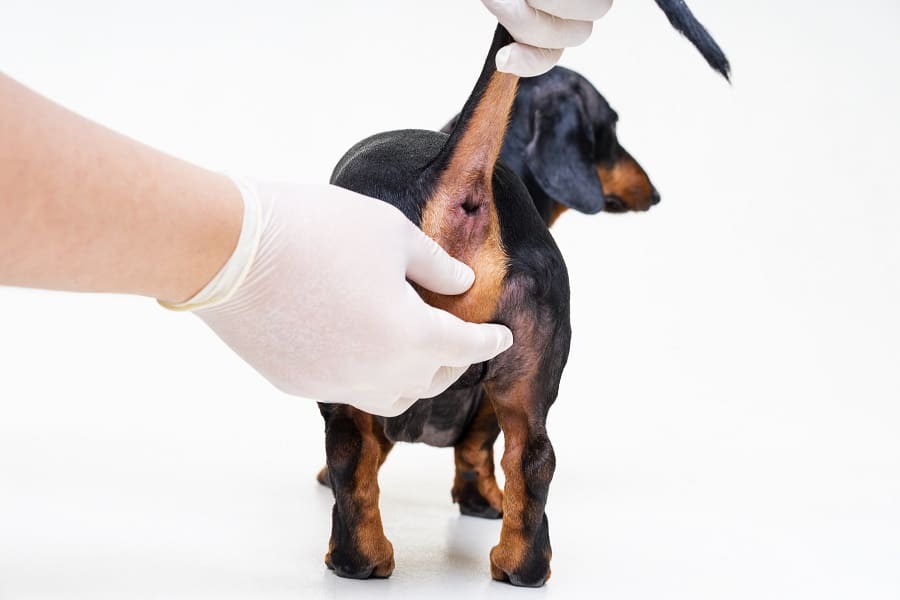
Anal sacs are a pair of glands present near the anus in a dog. These sacs generally get emptied on their own when the dog passes stool.
But, if for some reason this does not happen regularly, it can lead to a strong unpleasant fishy odor.
This failure to empty the anal sacs is seen more often in smaller breeds, like dachshunds.
If your dog suffers from this condition, apart from the foul smell from its hindquarters, you might also see other signs of discomfort, like the dog dragging its bottom on the floor.
The dog will also try to bite its behind or try to clean itself using its tongue, which can transfer the smell to its mouth.
The solution to this problem is manual ‘expressing’ of the anal sacs. This can be periodically done by your vet or your dog groomer, or you can learn to do it on your own.
It is not a pleasant task, as the viscous fluid that comes out of these glands smells quite nasty, but it will relieve your pet of immense discomfort and rid it of the foul odor too.
Diet
Your dachshund’s diet can also have a strong bearing on how it smells. There are no fixed rules here as the same product can have completely different effects on different dogs.
If you notice any peculiar bad smell from your dog, which is not attributable to hygiene, you can try to alter its diet for a short period to see if there is an improvement.
Or you can consult a vet too.
It is important to ensure a healthy, balanced diet that fits your dog’s needs while you try out the right food alternatives for it.
Related to this is the gassiness some food products cause among our canine friends. Like humans, dogs also pass wind to release gas from the body.
But excessive flatulence or frequent burping in your dog, both of which can be responsible for bad odor, are clear symptoms of some food item not agreeing with it.
Wet dog
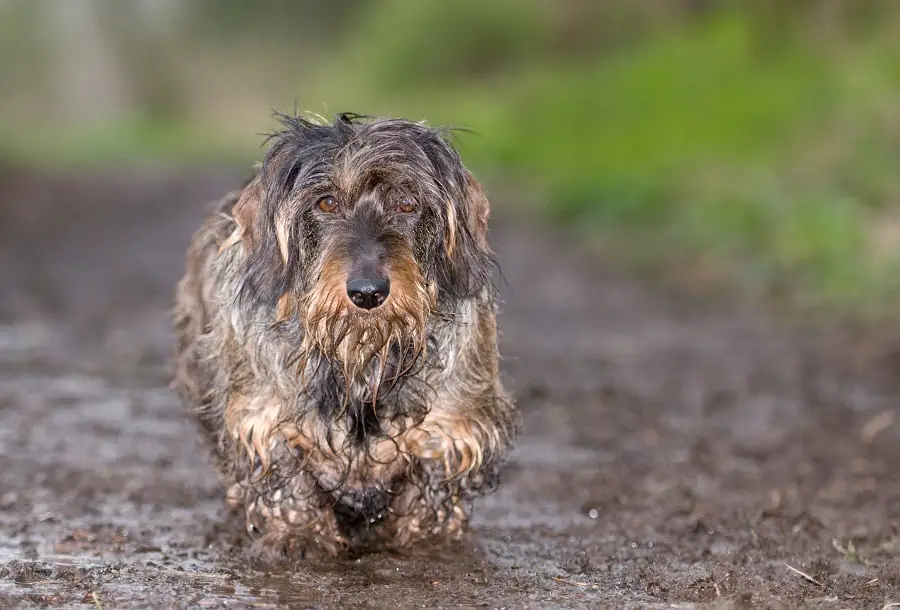
Dachshunds do not require frequent bathing, with one good session in a month or two sufficient for most dogs.
However, like many other breeds, they love to rub their bodies against people, other dogs, vegetation or on the ground.
This in itself could be a possible reason for the stench your otherwise healthy dog might suddenly start giving out, but the more frequent bathing this requires can also lead to smell issues.
Once you have bathed your dog, it is as important to let it dry completely.
Wet hair can begin to smell very soon, while damp spaces between toes can provide breeding grounds for bacteria.
If a dachshund smells bad, it is a sign that there is something wrong with its health, diet or grooming regimen.
Once you develop an understanding of these causal issues, you can ensure easily that your pet stays healthy and keeps smelling fresh the whole time.
While we can’t say if dachshunds have the same smell preferences as their human buddies, the removal of these underlying issues will certainly make for a happier dog.
